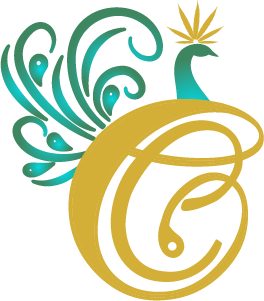Ketamine
A novel treatment for mental health conditions & end-of-life suffering

Dr. Charfen was introduced to psychedelic therapy by terminal patients seeking relief from end-of-life anxiety. She discovered Ketamine, a safe anesthetic she’s used for over 25 years in emergency medicine, could also benefit those with treatment-resistant depression, anxiety, PTSD, and other mental health challenges.
Recognizing its potential, especially amid the mental health crisis, Dr. Charfen pursued specialized training through a scholarship from the Psychedelic Research and Training Institute (PRATI). Now, she offers this innovative therapy to qualifying patients in her North Kohala office, bringing a much-needed option to her rural community.
Dr. Charfen now offers this treatment option to qualifying patients in her office in North Kohala.
Who qualifies?
-
Priority is given to patients with terminal or serious illnesses and their loved ones, as well as front-line healthcare providers experiencing mental health struggles. Ketamine may benefit those with treatment-resistant depression, anxiety, PTSD, addiction, or OCD.
-
Dr. Charfen works with individuals who have, or are open to, psychiatric support from a mental health professional. While she is not a psychotherapist, she emphasizes combining Ketamine Therapy with psychotherapy for the best results.
-
All patients must complete a detailed medical intake and an initial evaluation via telemedicine or in-person to determine eligibility. Ketamine is not administered on the same day as the evaluation.
Who doesn't qualify?
You do not qualify for Ketamine Therapy if you:
- Are allergic to Ketamine
- Are pregnant, breastfeeding, or planning pregnancy during treatment
- Have a psychotic disorder
- Have uncontrolled high blood pressure or significant heart/liver disease
Eligibility is determined by Dr. Charfen after reviewing your medical intake, records, and consultation details.
What is Ketamine?
How Does Ketamine Work?
Ketamine is a dissociative anesthetic, meaning it creates a sense of disconnection between the mind and body. It works by blocking the NMDA receptor in the brain, affecting the glutamate neurotransmitter system, which is different from other psychiatric medications.
In depression, ketamine may help stimulate neural growth and reverse changes in areas like the amygdala and hippocampus that govern mood. Research suggests it can bring rapid improvements in mood, with about 70-80% of patients responding to its antidepressant effects.
While ketamine is not a cure, it is a powerful tool in mental health treatment. Most patients require at least six treatments over a short period, with occasional boosters for continued benefits.
How is Ketamine administered?
Ketamine can be administered in Dr. Charfen’s office through IV infusion, intramuscular (IM) or subcutaneous (SC) injection, or as a sublingual dissolving lozenge or tablet. Each method affects the onset, bioavailability, and duration of effects differently.
Low doses of ketamine often produce antidepressant effects with minimal psychoactive or psychedelic experiences, requiring repeated treatments. Higher doses can lead to more intense, psychedelic effects. The view of some practitioners is that the psychedelic and dissociative experiences that occur at higher doses tend to provide a more robust and longer-lasting outcome.
Dr. Charfen tailors the dose and method to each patient’s needs, considering factors like preferences, goals, prior experiences, and physical characteristics. These details are discussed during the initial consultation.
How much does Ketamine cost?
Initial Medical Consultation for qualification: $200
-
Dr. Charfen can bill Medicare and HMSA for this consultation. Other insurance plans may accept a super bill for partial reimbursement (payment required in full before the appointment). Available in-person or via telemedicine.
Ketamine Sessions:
Sessions typically last 2 hours, with Dr. Charfen present throughout.- Oral/Sublingual: $395
- IM/SC: $495
- IV: $695
Discounts available for 3+ sessions.
(Hawai’i residents: GET tax (4.712%) applies.)
Terminally-Ill, Veterans and Senior Applicants:
Dr. ChaCha's Ketamine Journey
As part of her Ketamine therapy training, Dr. Charfen underwent treatment to better understand the patient experience. She was surprised by how profound just two sessions were. One week after completing her training, she was diagnosed with breast cancer. During this challenging time, Ketamine helped her manage the emotional and mental impact of the diagnosis. Thankfully, her cancer is now in remission, and she credits her recovery to her support team and Ketamine therapy. Read about her Ketamine Journey here.
Death Doula & Psychedelic Training
To learn more about Dr. ChaCha’s Death Doula & Psychedelic training using Ketamine, please click here.

